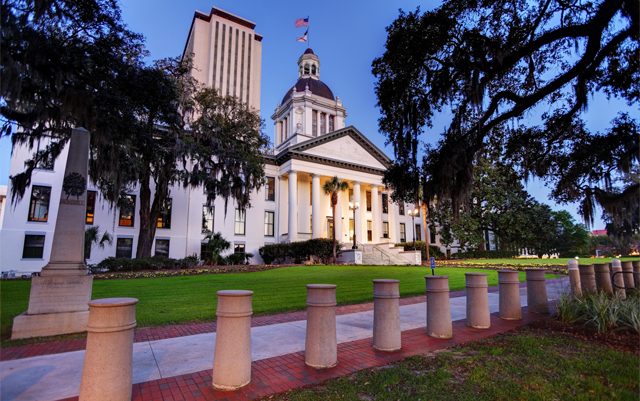When voters approved Amendment 2 back in November, it was clear that lawmakers were going to get a say in how to implement the new law. However, what we likely didn’t expect was that by the end of the legislative session, the House and Senate still wouldn’t have come to an agreement that they were both willing to pass. This led to a lot of uncertainty, and the Department of Health stepped in to ensure things would be up and running in the timeline set for the state in the amendment.
However, lawmakers are taking advantage of the special session taking place this week to try again to pass a bill that will govern the regulations for licenses to grow, produce and sell medical marijuana in Florida. The special session was originally only intended to go over issues like funding for education and economic development – but it also gave them the opportunity to get a medical marijuana bill to the governor’s desk this year.
“Our obligation right now is to look at what’s in the amendment and to make sure that we have a law that accurately reflects it and gives access to those patients whose illnesses are enumerated,” said Rep. Katie Edwards, D-Plantation.
The main issue that was causing both chambers to refuse to pass the other’s bill is a cap on dispensaries that each licensee can open and how many licenses will be awarded. Currently, there are seven nurseries licensed to grow, process and sell medical marijuana – and under this new bill introduced by Senator Rob Bradley just before the special session began, there will be 10 more licenses being awarded right away.
Those 10 licenses would include all five nurseries that came in second place during the process of determining the original 5 licenses allowed. From there they would also require at least one license be held by an African-American farmer, and the remaining would go to the other qualified applicants. Each of these licensees would be allowed to open up to 25 dispensaries to start – and 5 more for every 100,000 patients registered to the state’s medical marijuana program.
Along with the cap on dispensaries (which would only be effective until 2020) they would also be required to award an additional four licenses for every 100,000 patients registered. This is intended not only to ensure that there are enough businesses to supply the number of patients, but also to keep things more fair for companies competing against each other (reducing the current monopoly on medical marijuana in the state). While this is a great improvement on the bills they were trying to pass before, it is still far from perfect.
There are still a number of other issues, aside from the business aspect, that need to be addressed. For example, this bill – like both those introduced before it – does not allow for smoking medical marijuana; only vaping, edibles and oils. It also does not strip the 90 day doctor-patient relationship requirement that could delay patients in getting the medicine they need. However, it’s definitely a start and getting some of these things straightened out so the medicine can become available on time is extremely important. It just means this is by no means the end of shaping Florida’s medical marijuana industry, but rather just a big step in what we hope is the right direction.







not very likey this is the most corrupt state and they hate allowing cannabis, they left out the bill that came closest Sen Brandi’s bill all it needed to to prohibit pesticides and it was good as gold but the dropped it from consideration the first time the health committee addressed the bills on MMJ
I’m a Floridian,& I support legalization of marijuana for medical purposes, I’m glad Amendment 2 passed, but it doesn’t protect those who wish to smoke cannabis, only oral consumption & vaping. It should protect all forms of consumption.